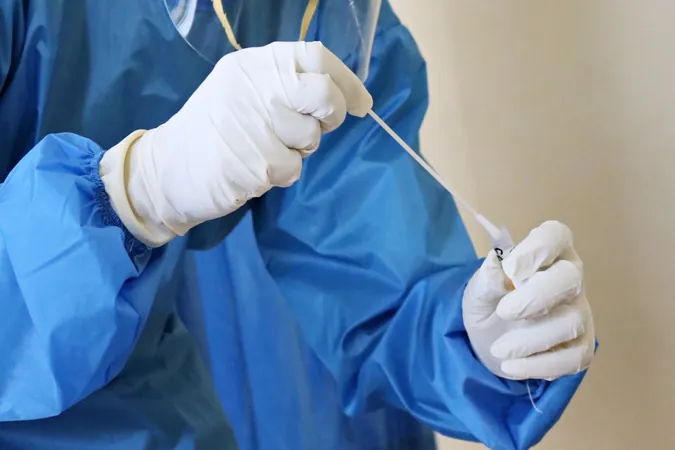
University of Guelph Joins Forces with Public Health to Enhance Wastewater Monitoring Amid Ongoing Health Concerns
2024-12-12
Author: William
University of Guelph Enhances Wastewater Monitoring
In an important public health initiative, the University of Guelph (U of G) has teamed up with Wellington-Dufferin-Guelph Public Health to advance their wastewater monitoring program that focuses on COVID-19, influenza, and other infectious diseases in Guelph.
Leadership and Objectives of the Initiative
Under the leadership of Dr. Lawrence Goodridge, Canada Research Chair in Foodborne Pathogen Dynamics, and Dr. Marc Habash from the School of Environmental Sciences, a dedicated team of researchers will conduct sampling and analysis of the city's wastewater three times a week. This proactive approach is in response to the ongoing public health challenges and aims to provide valuable data that can inform health strategies.
Surveillance Focus
The surveillance will specifically target viruses like COVID-19, Respiratory Syncytial Virus (RSV), influenza, and mpox, with findings shared publicly on a dashboard via the WDG Health website. Dr. Goodridge expressed his enthusiasm about the project, stating, "Wastewater surveillance has proven to be a low-cost, effective tool for monitoring seasonal viruses and potential new threats."
Advanced Capabilities in Testing
Dr. Habash emphasized the advanced capabilities of the U of G labs, which allow for comprehensive PCR testing and genetic sequencing of viral samples to track emerging strains. This level of insight is critical, particularly given concerns over new variants and infectious diseases.
Funding and Support
The U of G research team has received substantial funding from the Natural Sciences and Engineering Research Council of Canada (NSERC) and the Canada Research Chair program, along with resources from INSPIRE— a new $15 million initiative to bolster wastewater surveillance aimed at infectious disease identification.
Historical Context and Expansion
As pioneers in this area, U of G first initiated a wastewater surveillance program on campus during the early days of the COVID-19 pandemic, positioning themselves as leaders in Ontario’s public health response. The program has since expanded to monitor wastewater from Guelph, Orangeville, and the Niagara Region, providing essential indicators on community pathogen transmission.
Significance of Surveillance
Dr. Nicola Mercer, the medical officer of health and CEO of WDG Public Health, underscored the significance of this surveillance, stating, "This initiative allows everyone—from healthcare organizations to individuals—to better understand our health risks and make informed decisions."
Future Implications
The partnership marks a critical step in using scientific research to protect community health, providing a clearer view of health threats and contributing to safer, healthier regional outcomes. This collaboration not only highlights the University of Guelph's commitment to public health but also sets a powerful precedent for future research-driven initiatives in infectious disease monitoring.
Stay Tuned!
Stay tuned as this story develops, and find out how wastewater monitoring could change the game in fighting future pandemics!









 Brasil (PT)
Brasil (PT)
 Canada (EN)
Canada (EN)
 Chile (ES)
Chile (ES)
 España (ES)
España (ES)
 France (FR)
France (FR)
 Hong Kong (EN)
Hong Kong (EN)
 Italia (IT)
Italia (IT)
 日本 (JA)
日本 (JA)
 Magyarország (HU)
Magyarország (HU)
 Norge (NO)
Norge (NO)
 Polska (PL)
Polska (PL)
 Schweiz (DE)
Schweiz (DE)
 Singapore (EN)
Singapore (EN)
 Sverige (SV)
Sverige (SV)
 Suomi (FI)
Suomi (FI)
 Türkiye (TR)
Türkiye (TR)